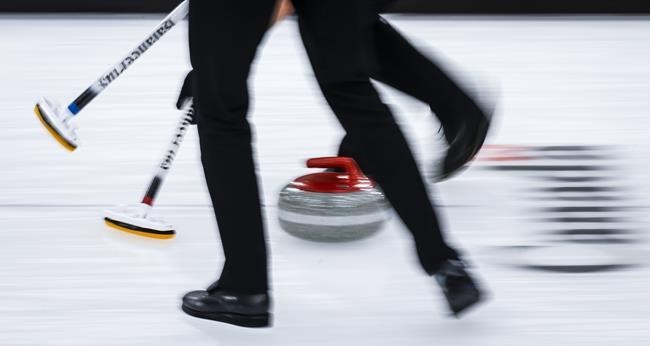OTTAWA — When Melvin Lee stepped onto the curling rink ice for the first time, he says he felt joy — not just because he found a sport he would come to adore, but also because he was being welcomed by peers who shared some of the same lived experience.
That first invitation to curl with a diverse team of law students came more than two decades ago.
Now, the avid curler has a wealth of experience under his belt. And he is trying to give a similar welcome to others who are underrepresented in the sport.
"Many members of my community, they're not going to on their own decide to join a curling club," said Lee, who is Korean-Canadian and works as a health-care professional in Ottawa.
"Because it's all white, and they just feel like they don't belong."
In May last year, Lee, who went on to become a consultant for South Korea's national curling teams, attended a Curling Canada symposium that focused on diversity, equity and inclusion.
There, he heard about local initiatives that were welcoming more people of colour and diverse groups to the sport.
He was inspired to follow their lead and accepted a position as the diversity, equity and inclusion director at the Ottawa Valley Curling Association. But he left not long after because he said he felt unheard at the organization, though he maintains a relationship with some of its members. The association did not respond to a request for comment.
Instead, Lee is working with organizations such as UnitedWeCurl and the Black Rock Initiative to see how he can bring some of the same strategies to Ottawa.
One of the first steps he is taking locally is to set up "learn to curl sessions" — two- to three-hour lessons for beginners who have no equipment but are interested in getting a feel for the sport. The goal is to introduce them to a curling club after developing their skills and confidence as a curler.
Andrew Paris, who founded the Black Rock Initiative in Nova Scotia in 2021, said his goal is to introduce young people of colour and diverse groups to the sport by giving them an opportunity to learn before heading into a curling club — a strategy that he said has "100 per cent" resulted in a growth in interest among those groups.
"It's not just enough to have that open door in your facility. You need to be vulnerable and reach out to those communities where they live," he said.
When Lee asked Paris for advice, Paris said he told him that building relationships is an important step toward greater inclusiveness. And curling clubs need to be receptive to the idea, too.
Lee said he is working with the youth program director at the Ottawa Valley Curling Association to encourage more diversity.
"There are (many) possible ways to search out new members, and I think there are many clubs in the Ottawa area that would be willing to do that," said Lee.
Curling Canada CEO Katherine Henderson said the topic of diversity is "incredibly important" to the sporting organization.
She acknowledged that as Canada welcomes newcomers, the organization needs to work in tandem with that growth.
But large organizations are only doing an "OK" job, said the president of UnitedWeCurl, an organization that works with curling clubs to help them become more inclusive spaces.
Sabena Islam said such organizations need to move beyond creating written toolkits and instead implement programs that are designed to yield lasting change on the ice.
"Diversity, equity and inclusion is not just a tagline or a poster you put up on your wall. It has to be embedded in everything you do," she said.
Even as Lee works on finding ways to do just that in Ottawa, he continues to work as a consultant for the Korean national teams.
It all started with a chance encounter in 2003, when Lee was living in Winnipeg for school.
On a whim, Lee decided to gather a group of young Koreans to cheer on their national team at the men's curling world championships in Winnipeg. The team's coach approached Lee after the game, thanked him for bringing other fans and invited him to dinner. Later, Lee connected the coach with a local curling club that wanted to help the Koreans build a new rink.
They lost touch until the Korean women's team was looking for a new coach following allegations of abuse against their former coach and two other curling officials.
Lee said the team reached out to him and asked for his help to reconnect them with their previous coach Peter Gallant, a fixture in the Canadian curling scene. He acted as a liaison and has stayed in touch.
This past week, Lee curled with the Korean women's team in Pyeongchang on the same sheet of ice where they won the silver medal at the 2018 Winter Olympics.
"It's one of those things that when you do something that's near the top of your bucket list, you've done it, but you can't believe it," he said.
"You think it's a dream."
This report by The Canadian Press was first published Jan. 8, 2023.
———
This story was produced with the financial assistance of the Meta and Canadian Press News Fellowship.
Cindy Tran, The Canadian Press


